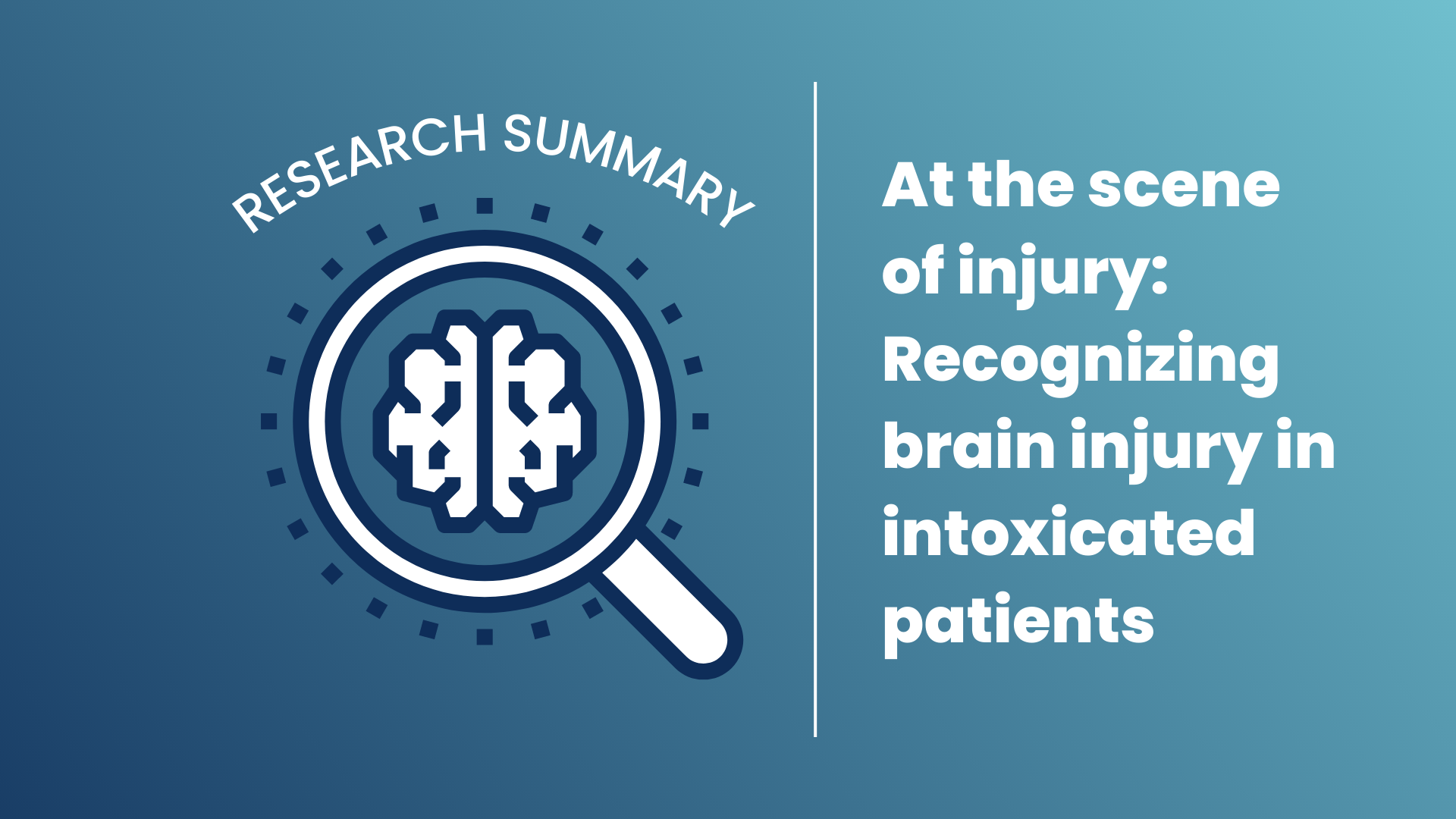
A Little Goes A Long Way
Your gift today is an investment in BrainTrust services that improve the lives of those with brain injury.
Donate Today


Alcohol intoxication is present in 10-18% of trauma patients
Emergency Medical Service (EMS) professionals are the first professionals at the scene of a trauma (e.g., car accident)
If signs of a TBI are mistaken for or overshadowed by signs of intoxication, individuals may be undertriaged (i.e., not sent to higher-level trauma centers) and therefore undertreated (i.e., delay in receiving specialized care)
How does alcohol intoxication influence EMS professionals’ pre-hospital assessment of people with severe TBI?
What is the relationship between suspicion of alcohol intoxication and severe head injury?
Collected records from 19,206 patients aged 16+ transported by ambulance to 5 emergency departments in the Netherlands from 2015-2017
Analyzed pre-hospital records written by EMS professionals
Analyzed data from registry of all trauma patients admitted to hospital
10.1% patients suspected to be intoxicated
Recognition of head injury in the field is difficult in both intoxicated and non-intoxicated patients
In intoxicated patients:
This means that 45.3% of the time, severe head injury is correctly recognized but 54.7% of the time the head injury is missed (i.e., later diagnosed in the hospital).
Similar findings in non-intoxicated patients:
37.2% patients with an unrecognized severe head injury were transported to a higher-level trauma center
Intoxicated patients were more likely to be:
Intoxicated patients with a severe head injury were more often transported to a higher-level trauma center than non-intoxicated
Severe head injuries are frequently not recognized at the scene of injury in both intoxicated and non-intoxicated patients
EMS professionals should be aware of the signs of brain injury and remember that intoxicated patients are at higher risk for having a moderate-severe head injury
In this study, patients suspected to be intoxicated were slightly more often recognized to have a severe head injury & more often transported to a higher-level trauma center
Source:
Lokerman, R. D., Gulickx, M., Waalwijk, J. F., van Es, M. A., Tuinema, R. M., Leenen, L. P., … & Triage Research Collaborative (Pttrc). (2022). Evaluating the influence of alcohol intoxication on the pre-hospital identification of severe head injury: a multi-center, cohort study. Brain Injury, 1-9.
doi: 10.1080/02699052.2022.2158228
We summarize a recently published research study every week to give you current, evidence-based brain injury information.